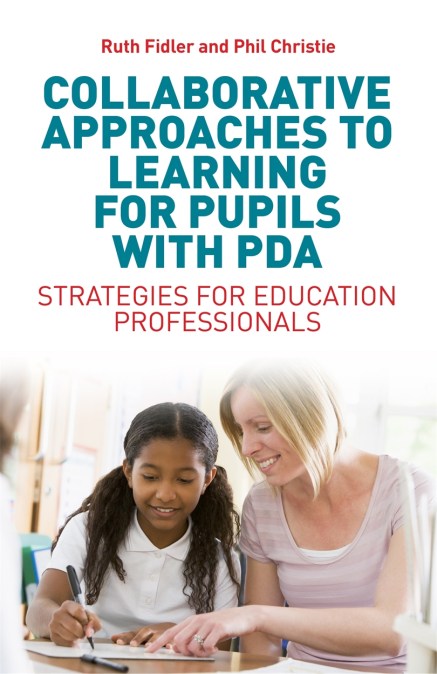Educational environments can present challenges for children with Pathological Demand Avoidance (PDA), who require different strategies than children with a more straightforward presentation of autism, and schools frequently find themselves struggling to meet their complex needs. In this guide PDA experts Ruth Fidler and Phil Christie outline effective strategies for supporting pupils with PDA in education settings.
Including a useful overview of PDA, this book outlines the impact of this diagnostic profile on learning, and explains why Collaborative Approaches to Learning is such a successful method for supporting pupils with PDA. It shows how teaching professionals can get started with this approach, with advice for implementing key strategies to overcome common challenges. The book also includes information on creating PDA-friendly learning environments, helping pupils to develop long-term social and emotional resilience. With handy downloadable resources, valuable information on supporting the wellbeing of adults who work with children with PDA, this is an essential resource for teaching and support staff in mainstream and special education schools.
Including a useful overview of PDA, this book outlines the impact of this diagnostic profile on learning, and explains why Collaborative Approaches to Learning is such a successful method for supporting pupils with PDA. It shows how teaching professionals can get started with this approach, with advice for implementing key strategies to overcome common challenges. The book also includes information on creating PDA-friendly learning environments, helping pupils to develop long-term social and emotional resilience. With handy downloadable resources, valuable information on supporting the wellbeing of adults who work with children with PDA, this is an essential resource for teaching and support staff in mainstream and special education schools.
Newsletter Signup
By clicking ‘Sign Up,’ I acknowledge that I have read and agree to Hachette Book Group’s Privacy Policy and Terms of Use
Reviews
As medical lead for ASD in Surrey, I witness first-hand the challenge that teachers face in responding to the needs of children with PDA symptoms. It's very clear that this book stems from the authors' unparalleled educational experience and I am excited about the good it is going to do.
